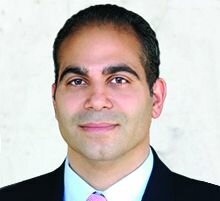
Anal fissures are relatively common occurrences that can cause major discomfort. Often, fissures (tears in the anal canal) heal on their own and do not require anal fissure repair surgery. However, if symptoms persist for more than a few weeks, you may want to schedule a consultation with a skilled colorectal surgeon. Additionally, fistulas (anal abscesses) are another very common condition affecting the anus, and can cause extreme pain. Fortunately, there are many treatment options available, including nonsurgical and surgical methods. It is important to learn the symptoms of fissures and fistulas, and be sure to pursue treatment before these tears or abbesses become bigger problems.
If you are concerned you may have an anal fissure or anal fistula, contact the experts at the Fissure and Fistula Center of Excellence for information and care. Anal fissures and fistulas can be safely and easily treated, as long as patients stay prepared and knowledgeable. Learn about the symptoms and treatment options for these anal issues in Los Angeles.
Anal Fissure Symptoms and Treatments
Anal fissures are tears along the anal canal that can affect patients of any age. Though most anal fissures heal by themselves, patients may need the assistance of a colorectal surgeon if the fissures persist. Patients should contact their doctor if they experience severe pain during bowel movements, itching or irritation around the anus, visible or cracked skin around the anus or blood in the stool or toilet.
If you have been diagnosed with a fissure, you should be sure to exercise regularly, drink fluids, eat a fiber-rich diet, and avoid straining during bowel movements. Some of the most common treatment options for anal fissures include:
- Medication – Common medications include medicated creams, sitz baths, and fiber supplements. These types of treatment have a 70 percent success rate for healing anal fissures, and are typically used in milder cases.
- Botox – In some cases, your doctor may use Botox to treat an anal fissure, and this method has an 80 percent success rate for treating fissures.
- Anal fissure repair surgery – If the fissure is more severe and causing extreme pain, anal fissure repair surgery (anal fissurectomy) with a partial sphincterotomy may be the best course of treatment. This surgical method has a 90 percent success rate for treating fissures.
Anal Fistula Symptoms and Treatments
Anal fistulas are a continuum of abscesses, and are a byproduct of the anatomy in the area, as well as anal glands/crypts becoming infected. The acute manifestation is an abscess, which is usually quite painful. Often, these abscesses will result in a fistula, which is a chronic presentation of abscesses, because the opening that caused the abscess stays open and feeds the system.
Symptoms of anal fistulas range from mild drainage to having repeated smaller abscesses, and while this is not a life-threatening condition, the repeated nature of the fistulas is what draws most patients to seek more involved treatment options.
There are many treatment options available, depending on the location and severity of the anal abscess or lump.
- Anal fistulotomy – This surgical treatment is performed as an outpatient procedure, and involves the fissure being opened and forced to heal. Fistulotomy is the most common surgical option to cure fistulas.
- Anal fistulectomy – This procedure is typically preformed if our expert surgeons believe a fistulotomy may not provide the desired results. The fistulas are completely removed during a fistulectomy, and the groove or wound where the fistula once was is left to heal.
- Anal LIFT procedure – This method treats the fistula by securing the closure of the internal opening and removing the infected tissue.
All of these surgical treatments utilize the most advanced and successful treatment options to remove and cure anal fistulas at our outpatient surgery center.
Contact the Fissure & Fistula Center of Excellence
If you have questions or concerns about your fissure or fistula treatment, contact the board-certified Beverly Hills fissure and fistula experts. You will be in the best hands for surgical or non-surgical treatment of fissures or fistulas. Call (888) 512-2312 for more information and to schedule a consultation!
Next, read reviews from our happy patients.









